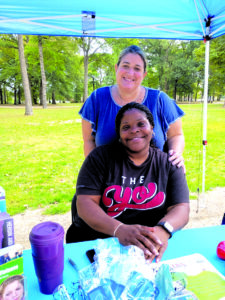Trumbull water advisory board weighs regionalization
Suggests Meander serve the entire area with Warren as backup
VIENNA — The word “regionalization” was brought up at yet another meeting in the county — but this time, from a different standpoint.
The 12-person Water Advisory Panel had its second meeting at the Trumbull County Sanitary Engineer’s Office on Tuesday. The board was formed earlier this year, after Trumbull County Commissioner Tony Bernard called for the group’s formation and a state performance audit — the first conducted on the county water department in its 58-year history — at an April 1 meeting.
The panel is only able to bring recommendations before the county commissioners for their approval.
While the panel, chaired by Champion Township Trustee Rex Fee, touched on the sanitary department’s operating budget and sanitary engineer Gary Newbrough reviewed pending projects in the township, they also discussed items that could change the way water is provided in the county.
Fee admitted that he was “resistant” to the idea of regionalizing water districts, but that was when water and sewer rates in the county were reasonable.
However, with the bulk water rate increases and the increased cost of sanitary sewer treatment over the past year, Fee said he felt the topic had to be “kicked around and discussed.”
“It makes sense; it goes toward the economy of scale. You have a huge region of customers under one entity, and the costs will come down,” Fee said, noting he manner in which cities calculated charges was “robbery.”
Fee said he knows regionalization has the support of the Youngstown / Warren Regional Chamber, Eastgate Regional Council of Governments and Western Reserve Port Authority. At the same time, however, he noted it would be a “long, arduous process.”
“I think the powers in this county need to give it a good, hard look. I think it’ll go a long way into reducing, if not stabilizing, rates,” Fee said.
Matt Blair, an attorney and chairman of the chamber, said the topic has been examined for years because they believe the current structure in Trumbull County is hindering economic development.
“I served as president of the MVSD (Mahoning Valley Sanitary District) for 21 years,” Blair said. “One of the things that always struck me is how it doesn’t make any sense how we distribute water in Trumbull County.”
Blair said many people don’t realize that Niles will sell water to Girard and mark it up beforehand, and Girard will sell water to Liberty and mark it up again.
“You’ve got that same water — there’s nothing different about it — it’s twice as expensive in Liberty as it is to a Niles resident,” Blair said. “There’s so many things wrong with this, and Phil’s (Pegg) going to agree with me on this — you should never be able to use water as a weapon for purposes of annexation.”
Blair said he could argue from the city’s standpoint that it’s their water and it came with the benefits of coming to them and paying income tax, but other progressive-minded communities enticing companies to come to their areas are regionalizing.
The two main models in Ohio Blair referred to were 6115 — referring to sanitary districts — and 6119, regional sewer and water districts.
“Most people don’t realize you are currently in a regional water district. It’s a 6115, it was a regional water district that was formed between the city of Niles and the city of Youngstown,” Blair said, referring to the Mahoning Valley Sanitary District. “That’s when they built the Meander facility years and years ago, and that facility has been paid for 10 times now.”
Blair said progressive communities use 6119s, a model the city of Toledo adopted, and provided trustees in attendance with a packet of their process. He agreed with Fee that it was a long process, as it took Toledo 15 to 20 years to reach its present point.
“That’s the direction you’re going to have to start moving. You don’t have to change it from a 6115 to a 6119, the only 6115 regional water authority in the state of Ohio is Meander, it’s the only one in the whole state,” Blair said. “Years ago, back in 1998, Jim Lucas actually passed legislation; they amended the 6115 to include an advisory committee.”
Blair said that the committee was active for some months, but eventually died off. He said it was reactivated several years ago because Trumbull County Common Pleas Court Judge Ronald Rice would not approve of any more rate increases at the MVSD unless there was an advisory committee looking at it.
Blair said he wonders why the communities in the advisory committee never banded together to amend 6115 to give them more teeth for the issue of water prices.
Blair said Niles and Youngstown could charge for the use of transmission lines, as it would still be a source of revenue for Youngstown and it would end the situation where water prices varied in a five-mile radius.
“It’s all the same water for the most part; if it’s coming from the MVSD — Youngstown charges, what, 50% more for the same water as Niles?” Blair said. “It’s the same water. You’re making money off of the sale of water, that’s what it comes down to.”
Blair said the Meander facility could serve the entire area.
“They only pump about 29 million gallons a day; they have a 60-million-a- day capacity. Think about that, and the more water you pump, the cheaper it is,” Blair said. “Instead of having Newton Falls purifying water and Warren purifying water, you could have one facility and one backup.”
Blair said the facility in Warren could serve as everyone’s backup facility, as areas are required by law to have one.
Blair suggested the panel attempt to get a grant to do a study on creating a 6119 or amending the 6115 to create a regional water authority.
“You’re going to get a lot of support from the state of Ohio, I can tell you right now, and you’re going to get a lot of support from the chamber,” Blair said. “That’s usually a pretty good combination.”



